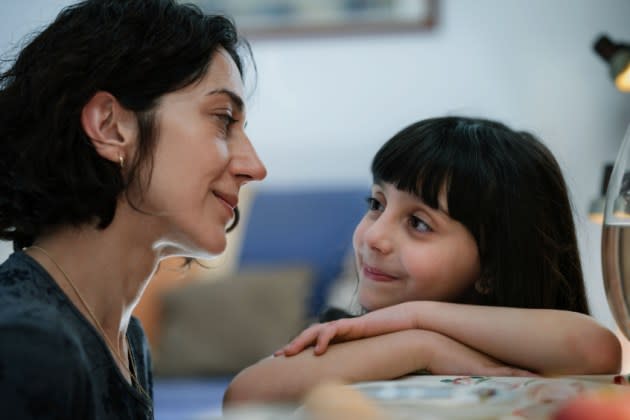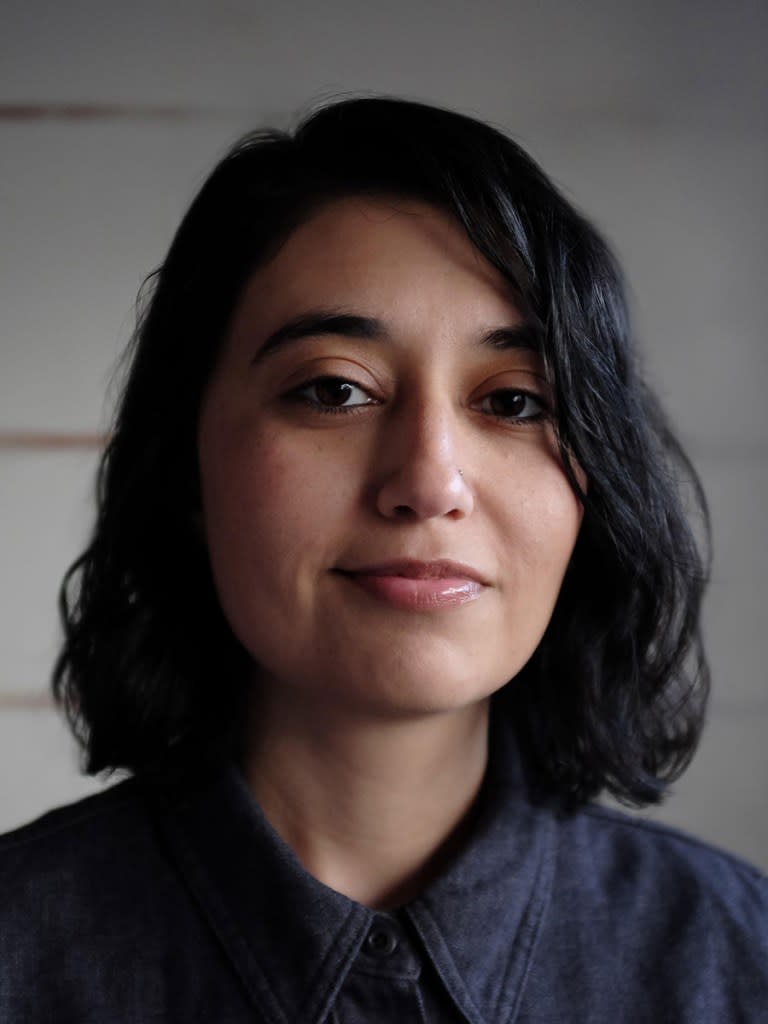Why Noora Niasari’s ‘Shayda’ Is a ‘Drop in an Ocean of Change’
- Oops!Something went wrong.Please try again later.

Five years ago, Noora Niasari asked her mother to write a memoir in order to fill in the gaps of some fuzzy childhood memories. The Iranian Australian director had been just five years old when her mother fled an abusive relationship and left her entire community to raise Niasari on her own in a foreign country.
An early draft of “Shayda,” which opens the World Cinema Dramatic Competition at Sundance on Friday, was based on that memoir and tracks Niasari’s mother’s life from her arranged marriage in Iran as a teenager to finding independence in Australia with her child. The resulting film stars “Holy Spider” breakout Zar Amir-Ebrahimi as Shayda, and Selina Zahednia as her daughter, Mona.
More from Variety
“There are a lot of fictional elements within the current version of the film, but it’s very much grounded in the emotional truth of our experience,” the Melbourne-based Niasari tells Variety.
Backed by Screen Australia and produced by Cate Blanchett’s Dirty Films, “Shayda” is the helmer’s first feature film and follows a number of acclaimed shorts, including “Tâm,” “17 Years and a Day” and “Simorgh.” The director says she had to work up to “Shayda,” both technically as an artist, and emotionally as a daughter who’s still processing her past trauma.
That pain, however, would only deepen in the fall when, as “Shayda” was being edited, 22-year-old Mahsa Amini died in police custody in Iran, after having been arrested by Tehran’s morality police for wearing a hijab “improperly.”

Amini’s death sparked a revolution in Iran, now coined the “Woman, Life, Freedom” movement, which has seen women forgoing their hijabs in public, and even destroying them in protest, only to be faced with violent and sometime deadly rebukes from the regime. More than 500 people have so far died as part of the street protests, according to the Human Rights Activists News Agency.
Niasari hopes that “Shayda” — one of three films from directors of Iranian descent that are playing at Sundance (the others are “The Persian Version” and “Joonam”) — will be a “drop in an ocean of change.” While any sort of demonstration hasn’t yet been planned for Park City, the director says industry panels will address the situation and its impact on human rights as well as filmmaking.
“I don’t see it as something that’s going to be creating a monumental shift — I’m really realistic about the situation — I just hope that it’s a way to amplify and support what’s happening in Iran.”
Read on for Niasari’s full interview.
You’ve made a number of shorts ahead of this feature. Why was this the right moment to make this film?
I didn’t feel ready. I felt we were making the shorts, documentaries, traveling, working, being in writers rooms, doing directors attachments. All of these things were stepping stones to make my feature. And at the same time, I needed to process some things in my personal life in order to be ready to make this film, because it was very challenging, emotionally and psychologically. I don’t know if I would have had the ability to do it any sooner.
When exactly did you shoot?
In July and August of 2022.
Oh, wow. So you had seen Zar in “Holy Spider” then?
Well, actually, I hadn’t. I saw the film before filming, but when I cast Zar, it was before Cannes. It was in February 2022. I was introduced to her as a potential candidate for Shayda. We searched far and wide, and I’m very grateful that I met Zar because, as soon as I saw her first audition, I just knew she epitomized the character. The duality of her vulnerability and strength really blew me away and I knew that she was Shayda.
When did Cate Blanchett and her production company come on board?
They became involved toward the end of this development stage, just before we went to market with the script. One of the producers sent the script to [Blanchett] because he’d worked on a film called “Little Fish” with her some years ago. They read the script and loved it, and then we had a Zoom meeting. They were champions of the project from then on. It’s wonderful to have her in my corner.
This is such a personal story. What did you find the most challenging in terms of the shoot?
Anything that involves the father character, Hossein, was particularly challenging. At the same time, the actor that I cast [Osamah Sami] has been a good friend for 10 years. We both live in Melbourne, and I have a lot of respect for him. He’s also very funny guy who does a lot of stand-up comedy. He has a charisma, presence, humor and lightness that I loved, and it just allowed his character to have this other side that the audience could access. He’s not just a black and white character. As an actor, he made me laugh every time I was on set, which really helped with what I was going through.
There must have been some crossover, too, between your edit on the film and the revolution in Iran, right?
The first couple of weeks of the edit is around the time when Mahsa Amini was detained and murdered by the regime. It was very difficult for my editor [who is Iranian American] and me to concentrate because we were following the news every night, not sleeping, stressed out, trying to call family and not getting through. But at the same time, we found a new motivation to finish it, to make it the best we could because Shayda’s fight is also a fight for freedom and independence, and breaking away from these cultural norms and laws that restrict her from living a life on her own terms. It gave me a renewed motivation to finish the film, because I had a depressive episode after finishing the shoot where I found it very difficult to be productive due to the emotional toll of the filming process. I needed one or two weeks off. I’d cry a lot and process, but my editor was so beautiful in creating a safe space and creating a light energy. When the revolution started in Iran, we were very unified by this situation, and we felt helpless. But in finishing the film, we found a renewed purpose.
When it’s so easy for people to turn off the news and block out what’s going on, how do you think films like yours can change perceptions of these world events? Could there be a change in the collective consciousness and how we discuss what’s happening in Iran?
In the instance of what’s happening in Iran, and the kinds of films that we’re making, it’s important to highlight a subjective, intimate experience — a personal one. One that takes you into the journey of a character, what they’re going through on a day to day basis. Because obviously with headlines and in Instagram posts, you only get a glimpse of something. My main hope for “Shayda” is that it’s a drop in this ocean of change. I don’t see it as something that’s going to be creating a monumental shift. I’m really realistic about the situation. I just hope that it’s a way to amplify and support what’s happening in Iran. I don’t think it can be more than that, but at the same time, I think that’s valuable and I’m very grateful to be able to contribute in that way.
How do you feel about the film likely being prohibited from screening in Iran?
I’ve never thought that that was very realistic. The film is not political, per se. It’s about social issues and women’s rights and women seeking freedom in the West, so I’ve never really had a hope that it would screen in Iran. One of my actors, when the revolution was happening, said, “How amazing would it be if we were able to go back one day and actually screen the film?” And that was really the first time that I had a little vision about it. It was very beautiful. But no, I’ve never had a hope that I would screen there, just because I know about all the censorship in Iran. If I was to go back today, I think I’d be in prison. I don’t think I would be allowed to leave the country because of the film and the people that I made the film with.
“Shayda” has its world premiere in Park City on Jan. 20, with additional screenings from Jan. 21-27.
Best of Variety
Sign up for Variety’s Newsletter. For the latest news, follow us on Facebook, Twitter, and Instagram.

